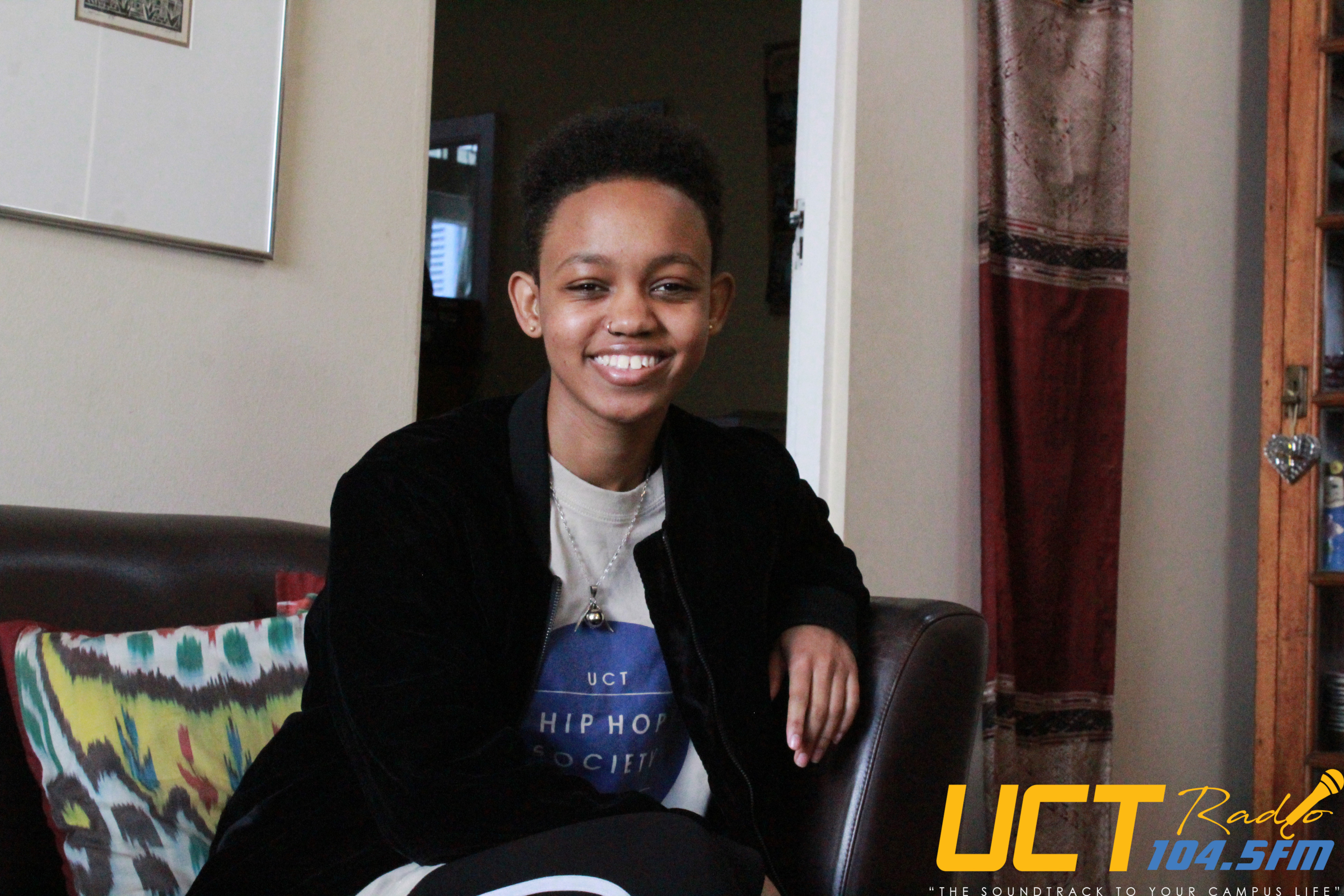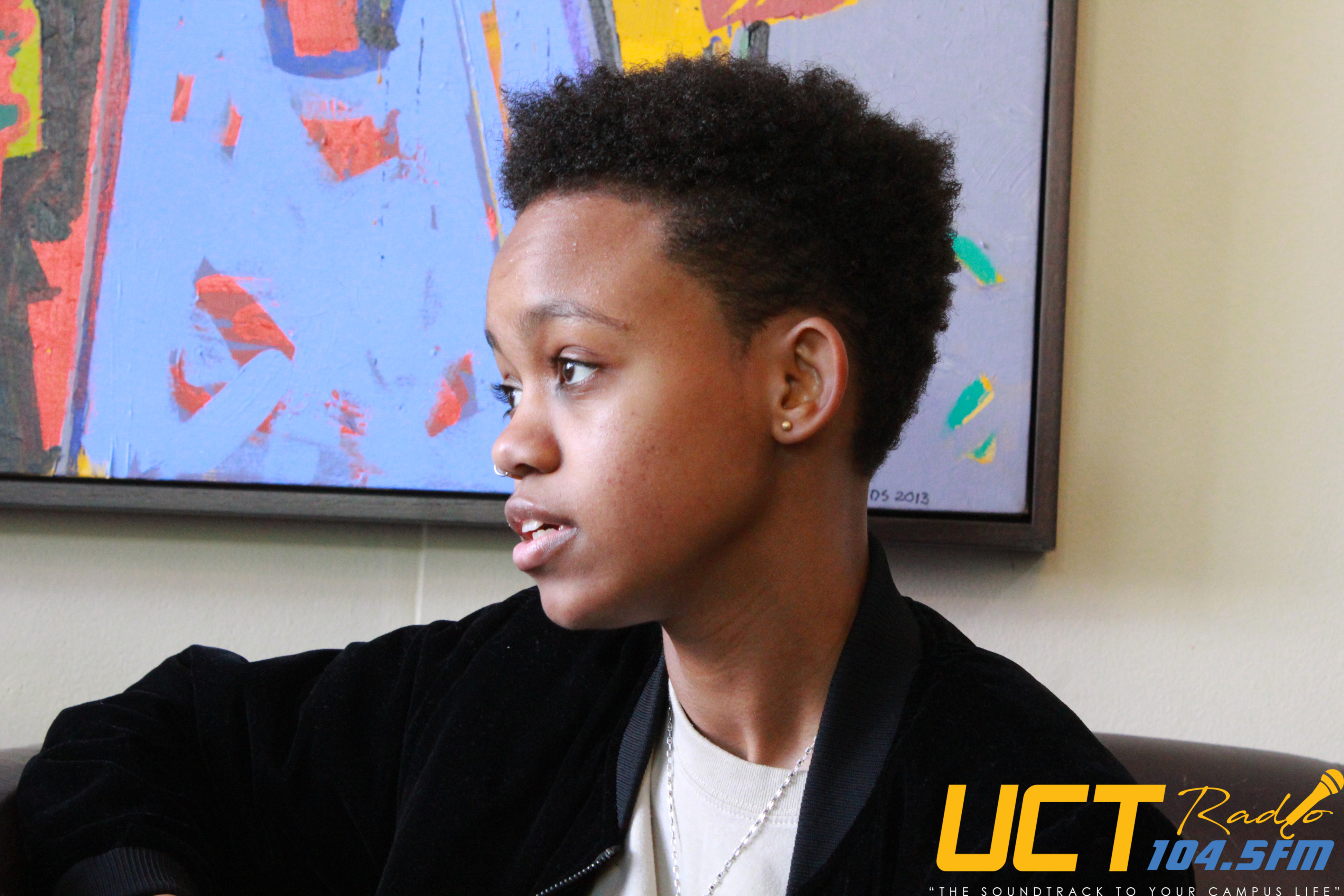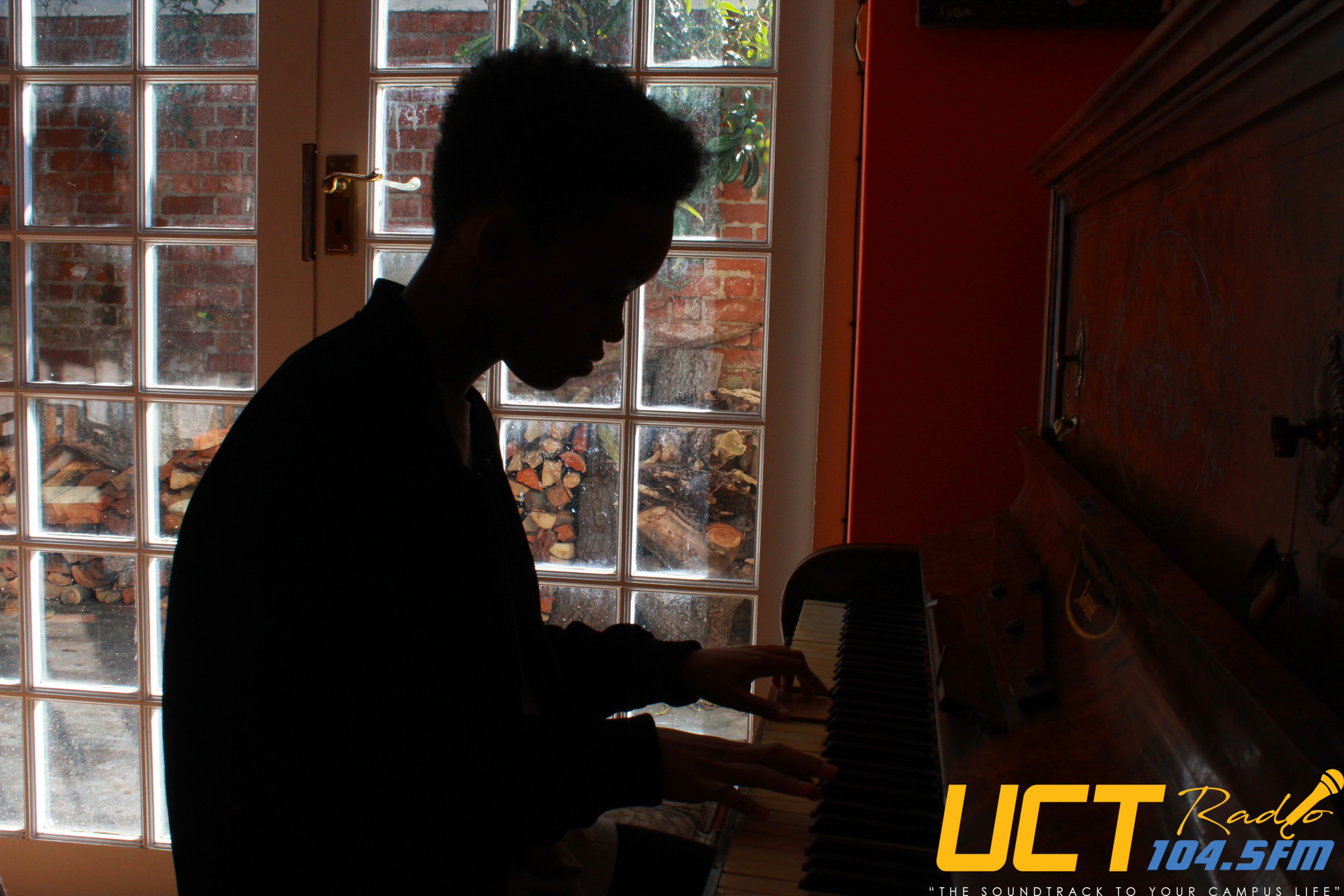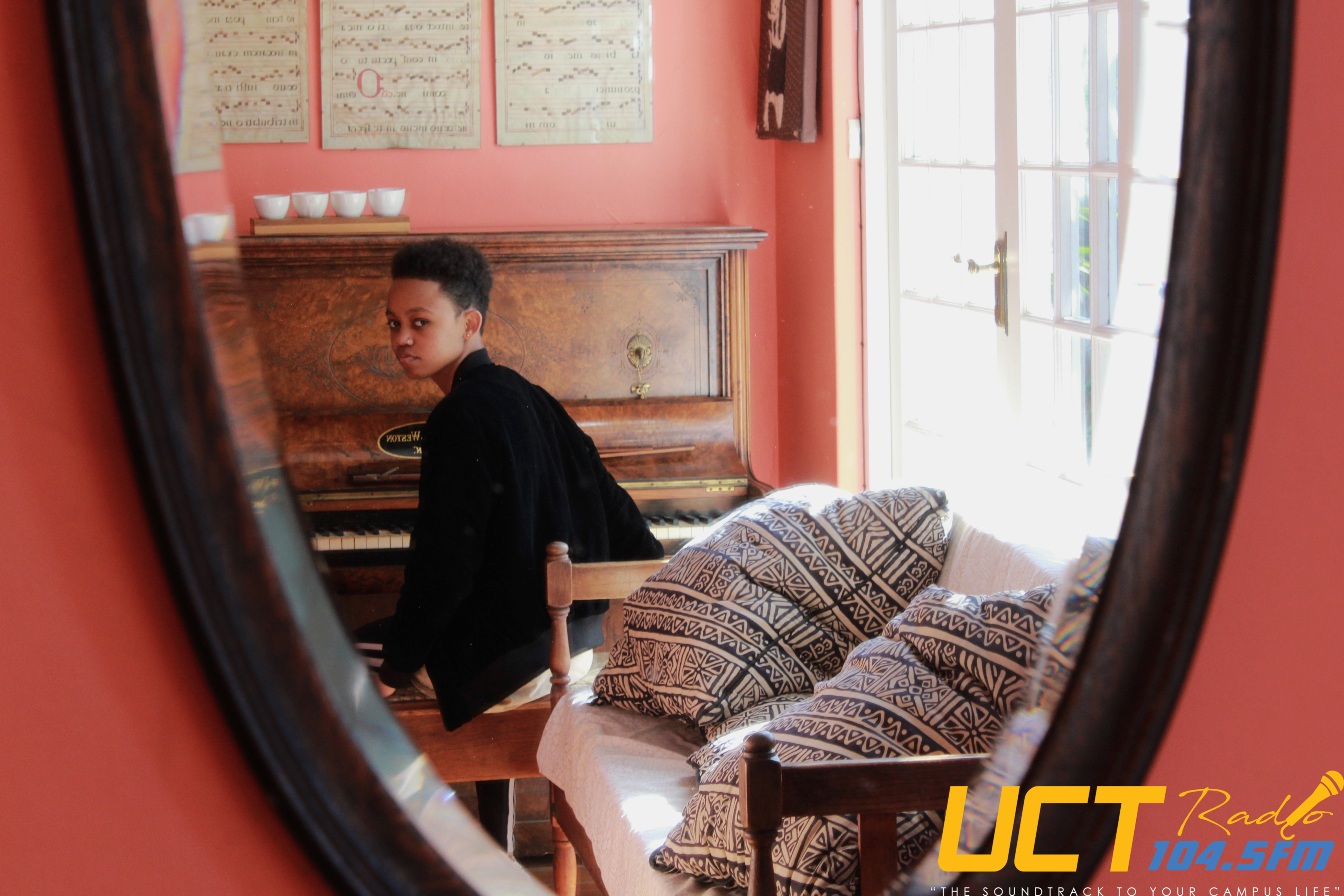UCT Artist Spotlight: Hanna

We're finishing off Womxn's Month by putting a spotlight on UCT Artist, Hanna!
At the University of Cape Town, there are many students who make music in between trying to make sure that they pass their courses. For some, it’s just a hobby or an outlet for student stress. Others dream of making it big and being able to drop their academic commitments. However, many of those students give up after realizing that it takes more than being popular on campus and having a social media following to make a name for yourself in the South African music industry.
Hanna Kuruneri, known by her stage name, “Hanna”, seems an anomaly in this complex environment. Having spent time in the recording studio with major South African artists such as Nasty C, Tellaman and Rowlene and still being serious about her academics, she seems to be paving a new way for students aiming to be professional musicians.
We caught up with Hanna in person to talk to her about her music industry experience, influences, school and what to expect from her for the remainder of 2019.

Rèné: I was reading your Varsity Newspaper article, the one that came out in May last year. That was just after the whole thing happened with Nasty C commenting on one of your videos. And now, a year and a bit later, you’ve worked with him on Lift As You Rise. How did that happen?
Hanna: Lift As You Rise was another Instagram competition where we had to upload videos of ourselves. So they posted like six tracks and left open verses in each of the songs. There was Nasty C, Rowlene, Tellaman, Gemini Major, Lastee and a producer called Zino D from Cape Town. They all worked on these tracks and left open verses for us to fill in with our own sixteen bars. You then posted your video to the social network of your choice - I did mine on Instagram and Twitter. They went through a selection process and picked their favourites. Those who won went to the Red Bull Studios here in Cape Town and recorded their verses and had them engineered properly.
R: So, you had the whole experience of being in the studio with those artists?
H: Yeah, it was really cool!
R: Does it feel like it’s been a year since that original Nasty C comment? How much do you feel has happened between then and now?
H: It’s been a lot. The whole Nasty C situation with the comments and that video is actually what made me want to start doing [sic] music more seriously. I hadn’t recorded anything at that point, I just wrote and performed at open mics and stuff - not even open mics! I hadn’t performed at any then.
I would perform at the Hip Hop Society cyphers, but that was kind of the extent to which my music was being exposed to anyone. After that I started getting into the actual studio. I recorded with Nalu, I made songs with other UCT artists like Drew The MC. I just started recording my own music, putting out actual singles and performing. So it feels like a lot has happened, but in a very short period of time. I can’t believe it’s been a year actually; that’s crazy.
R: I want to ask you about the UCT space. I was wondering how it is for artists that are also students here. Sometimes it seems like a place where musicians have an immediate network around them, with loads of young people willing to work. But at the same time, do you think there’s a thing of being connected to UCT and therefore not being taken as seriously as someone who’s doing it outside of university?
H: So someone I worked with, a really big event coordinator here in Cape Town, warned me about something like this. I think it’s easy to get lost in the whole ‘UCT sauce’ and to get campus famous. And it’s easy to think that that now equates to actual fame and actual exposure, which it doesn’t.
I had to learn that it’s important to expose myself to other crowds as well. Of course the UCT crowd is my main crowd, but it’s important to remember that that’s not all that there is and not to lose out on opportunities because of that. I feel like it’s really easy to just get a big head because of the campus fame and in turn lose out on doing other things. You think that everyone now knows you - when they actually really don’t.

R: You’re in your third year of study, right? What are your majors?
H: Yeah, this is my third year. I’m doing electrical and computer engineering.
R: So how much time have you been dedicating to the studio? Have there been issues with balancing that and academics?
H: It’s been hectic, I won’t lie. When people ask me this question, I always say that I don’t have balance. It’s hard because making music is a very time-consuming process and it takes a lot out of you. It’s not as simple as just having an idea in mind and just executing it. For example, from the day I recorded Gimme to the day of its release was about six months. That was also due to a lot of other things. But it actually takes a lot to put out a finished single, be happy with it and feel like it’s been engineered to the right level. I try to do my best to hold it down in both departments, but most of the time I have to sacrifice one or the other. It’s intense, I won’t lie.
R: What does your family think about the whole music thing?
H: I feel like I have kept them updated with everything that’s happened, but they still cannot grasp how big of a deal it is. To them is just seems like I am doing music as a hobby, but they have been nothing but supportive. A lot of them don’t know and I prefer for them not to know, because my music isn’t always “palatable”. Other than that I think they’re cooler with it than I thought they would be.
R: Do you think the success you’ve had so far has made your family okay with what you say in your songs?
H: I feel like as soon as you’re successful in something they kind of turn a blind eye to the other stuff. It’s a bit like with Aminé and his mom. I don’t know if you saw his music video for Reel It In, but it was very explicit. So his mom texted him and she's like “I don't like your video there's too much booty, but it's OK I'll just pray for you”. I know he also has African parents so I understand what the relationship is like.

R: In terms of what you listen to, you said that there really wasn’t much music around when you were younger. What are you listening to now? What are your go-to albums?
H: Well, I have to start off with my wife, the love of my life, my day one: Kehlani. She’s a new one actually for me. I listened to a lot of rap before and maybe because I didn’t grow up around a lot of music, I don’t really listen to that much. Which is weird because I make a lot of it. But it’s probably a good thing, because I feel like I’m very easily influenced by what I listen to, which isn’t always good. So yeah Kehlani is probably my number one right now. All her albums are go-tos for me.
I listen to J Cole, I’m a huge fan. He was actually the first rapper that I listened to that made me want to start writing rap, mainly because of his storytelling. So The Sideline Story, 2014 Forrest Hills Drive. Even his new stuff, like 4 Your Eyez Only. I just stan him in general. Another one would be Mick Jenkins, he’s amazing. I actually met him here in Cape Town when he did a show at District and I went there with my sister and a couple of friends. So yeah, he also really influenced me in terms of his alternative sound. So if I was to do alternative-sounding music it would probably be influenced by him. So Mick Jenkins is another huge one. And Sam Smith! Oh my word I’m a huge Sam Smith fan. He’s incredible. I think after listening to him I started getting into a lot of singers.
R: Referring back to that Varsity News article, I read that you don’t want be seen as just a rapper. Can you talk about that, and whether there are any genres you’d still like to try out?
H: With me, it just so happens that the stuff that gets me followers is the rap, but it’s not all I do. I also produce and sing, and I enjoy sounds that are quite melodic. If someone sends me a beat or if someone wants me to record a song with them, I usually just go with instinct. Like whatever I feel inclined to doing [sic]. I would like to try other genres. I feel like rap is a very small box to put me in.
Also, I feel like, you know, there’s so much more that you can do with hip-hop than people are doing right now. I really want to try out stuff like trap soul, I enjoy it, even just pop is quite fun. Like Gimme. I feel like that was very poppy as well. I’m super into Afro beats as well.
So yeah, there’s a lot I want to try out. I think the music I’ve been making recently reflects that, and when that gets released, people will see that I’m really trying to do a lot of different things.
R: When can we expect new music from you?
H: You can definitely expect new music this semester. I was working on an EP just before I left Cape Town for vac so you can expect that. I’m really excited about releasing it. It’s definitely a different sound, but I think people will enjoy it.
I did say that I wanted to drop a mixtape this year and I’m still hellbent on doing that. So I guess you can expect two projects this year and a bunch of singles and videos. The next few months are going to be filled with a lot of shooting so there’s a lot on the way. It’s a busy time.

R: Super. And what do you mean when you say mixtape?
H: So, with the mixtape I mean a bit longer than the EP. The EP is probably about five or six songs, whereas the mixtape would be more like nine tracks.
My idea for the mixtape was to have a mix of genres. I wanted it to be an actual mix of what I can do, for it to say: “This is who I am as an artist”.
You can keep up to date with Hanna and her music on her social media accounts.
Instagram and Twitter: @therealnigist
SoundCloud: therealnigist
